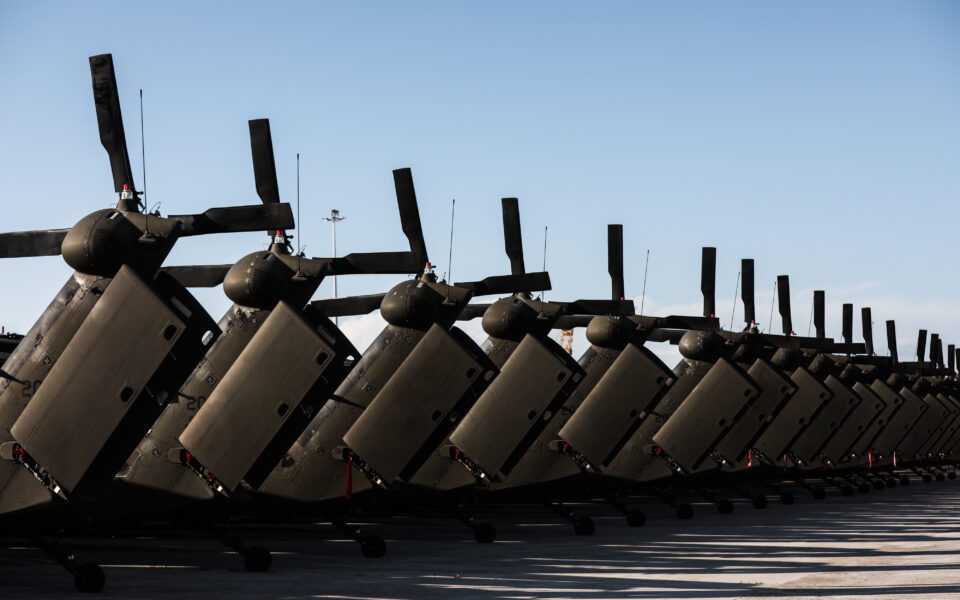Greece is more than just a tourist destination

Greece, a country of less than 11 million people, welcomed over 33 million tourists in 2019. Despite its well-earned reputation, the birthplace of democracy and the cradle of Western civilization is more than just a tourist destination. In fact, Greece’s strategic location at the intersection of Europe, Asia and Africa makes it indispensable for NATO’s collective defense and crucial for solving the European energy crisis.
On Crete, Souda Bay provides NATO with the only deep-water port in Southern Europe and the Eastern Mediterranean. Referred to as the “jewel in the crown” of the military alliance, Souda Bay is a natural harbor with world-class facilities that enables NATO to host and maintain the largest aircraft carriers in its fleet. This includes the USS Harry S. Truman and France’s Charles de Gaulle. Given its geographic proximity to North Africa and the Middle East, Souda Bay also helps the Western Alliance project power on two distinct fronts. This ranges from managing migration patterns in the Eastern Mediterranean to monitoring the UN Security Council arms embargo on Libya.
In Thrace, the port of Alexandroupoli provides NATO with an invaluable military logistics hub at the crossroads of three NATO countries – Greece, Bulgaria and Turkey. Naturally, its strategic location enables NATO to project power in the Black Sea and the Balkans. On the one hand, this heightened presence bolsters NATO’s southern and eastern flanks while supporting allied operations in Bulgaria and Romania. On the other hand, it also empowers NATO to maintain peace in the Western Balkans and reinforce the Kosovo Force (KFOR) should the need arise.
Since invading Ukraine, Russia has also weaponized gas and provoked an energy crisis in Europe. Naturally, this has jeopardized European gas supplies and caused the cost of gas to skyrocket for households. Winter is coming, and Europe is struggling to deal with this crisis. As a leader in energy diversity, energy security and energy transition, Greece has an important role to play in solving these challenges.
Besides being a military logistics center, Greece plans to turn Alexandroupoli into an energy hub. On the one hand, the port’s strategic location enables it to serve as a gateway for gas entering the European market from Asia and the Middle East. On the other hand, its proximity to the Balkans and Italy incentivizes Greece and its partners to invest in infrastructure projects to strengthen the interconnectivity of natural gas networks in the region.
For instance, the Southern Gas Corridor transports gas from the Caspian Sea through Azerbaijan, Georgia and Turkey to Greece. There, it connects to Albania and Italy via the Trans Adriatic Pipeline (TAP). Although TAP’s current operational capacity is 10 billion cubic meters per annum, it was designed to deliver up to 20 bcm/a. To put that into perspective, 20 bcm/a is enough energy to power 14 million homes in Europe.
Furthermore, the Gas Interconnector Greece-Bulgaria (IGB) will enable Bulgaria to import non-Russian gas for the first time in its history. To complement the IGB, the Alexandroupoli Floating Storage and Regasification Unit (FSRU), a liquefied natural gas (LNG) terminal, will provide up to 5.5 bcm/a of natural gas to the Greek, Bulgarian, Serbian and North Macedonian energy markets.
The port of Alexandroupoli provides NATO with an invaluable military logistics hub at the crossroads of three NATO countries
The list goes on and on, but Greece has an important role to play in Europe’s energy diversification and ending the West’s addiction to Russian fossil fuels.
All of this is compounded by Greece’s role as a global freight and logistics center. More than 80% of international trade volume is carried by sea, and few countries are so inextricably linked to maritime transportation as Greece.
Piraeus, for its part, is the busiest port in the Eastern Mediterranean. In addition, Greece ranks first globally in ownership of merchant vessels and Greek shipowners control up to 18% of global carrying capacity.
What’s more, Greece’s proximity to the Turkish straits, through which more than 40,000 vessels carrying up to 650 million tons of cargo pass every year, amplifies its strategic importance in global maritime trade.
To illustrate one facet of this strategic importance, consider that up to 400 million people worldwide rely on Ukrainian food supplies shipped from the Black Sea through the Turkish straits and into the Aegean Sea.
Evidently, Greece’s strategic location at the intersection of three continents serves as a bridge between Europe, Asia and Africa. More than a tourist destination, Greece is indispensable for NATO’s collective defense and crucial for solving the European energy crisis.
George Monastiriakos is a Greek-American political science and history graduate who writes about global affairs and politics. His work has appeared in Newsweek, The Globe and Mail, and Hill Times. He can be reached on Twitter @monastiriakos.





